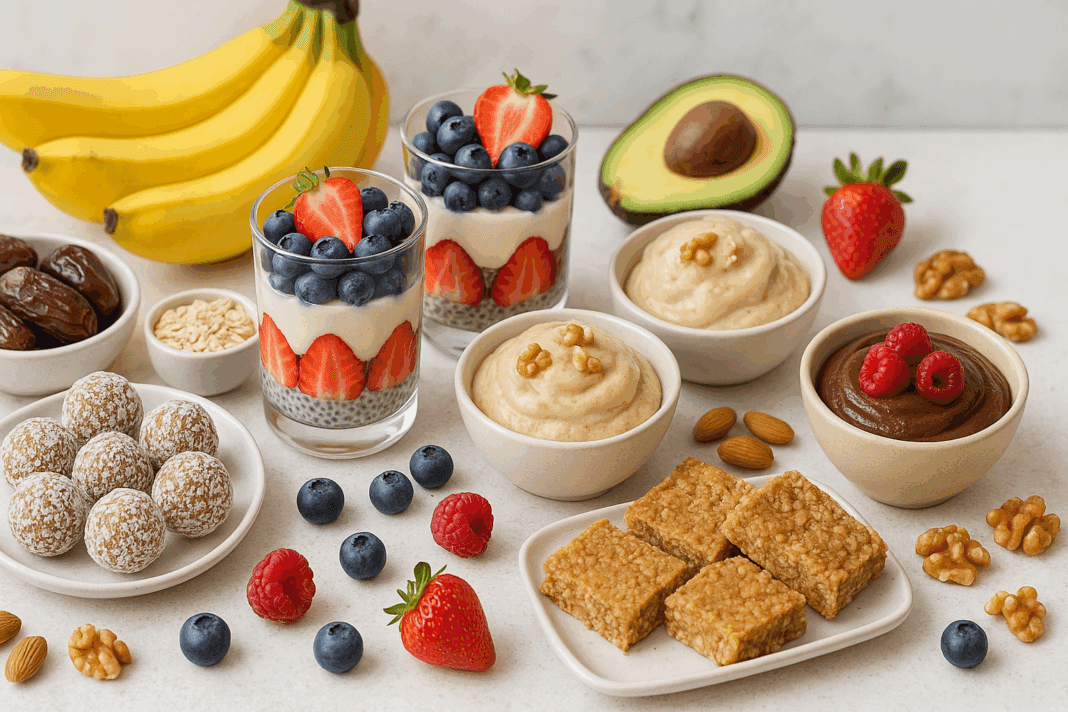In recent years, the movement toward plant-based living has gained remarkable momentum, with more people turning to whole food vegan diets as a way to align their health goals with ethical and environmental values. One particularly exciting and delicious aspect of this lifestyle shift is the ever-expanding world of whole foods vegan desserts. These naturally sweet, nutrient-rich options offer an indulgent experience without relying on processed sugars, artificial additives, or animal-based ingredients. Instead, they highlight the vibrant flavors and health benefits of fruits, nuts, seeds, grains, and minimally processed plant foods. For those seeking mindful nourishment without sacrificing the joy of dessert, exploring vegan desserts at Whole Foods Market offers a gateway to both creativity and wellness.
As consumers become increasingly conscious of ingredient sourcing, nutritional integrity, and long-term well-being, the demand for desserts that support these values has surged. Whole Foods Market, a pioneer in health-focused retail, has become a haven for shoppers looking to discover satisfying treats that align with whole food plant-based principles. Whether you prefer store-bought delights or the DIY route, the options are as diverse as they are delicious. But beyond mere taste, the appeal of whole foods vegan desserts lies in their potential to deliver sustained energy, support digestive health, and contribute to a well-balanced, holistic diet.
You may also like: How a Whole Foods Diet Supports Sustainable Weight Loss: Expert Tips for Eating Whole Foods to Lose Weight Safely
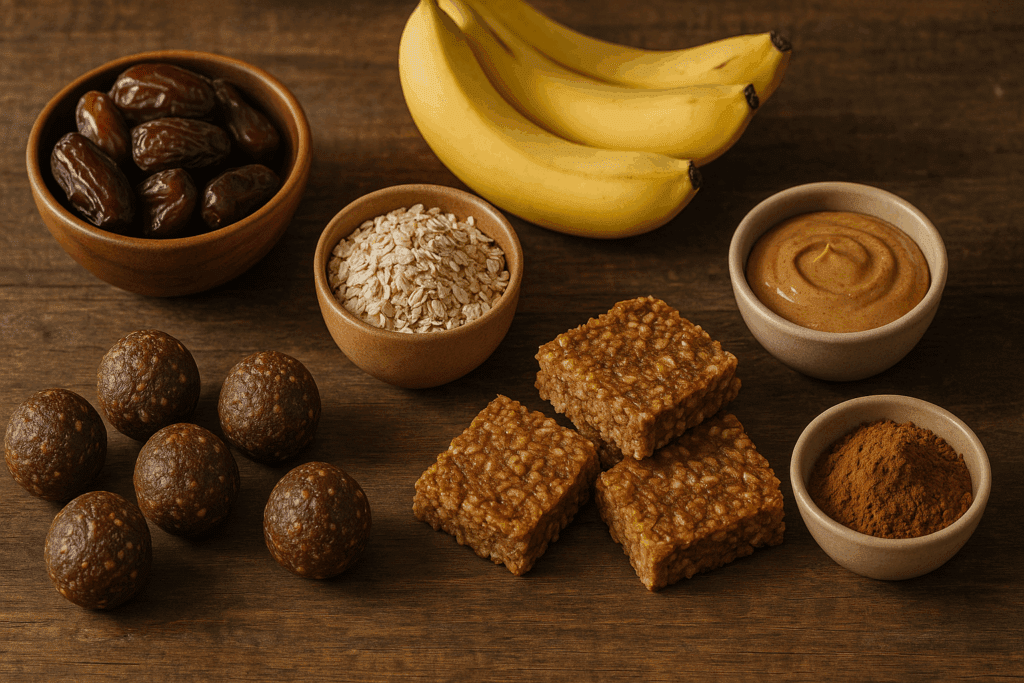
Understanding the Appeal of Whole Foods Vegan Desserts
Unlike conventional desserts that often rely heavily on refined sugar, butter, and highly processed flours, whole foods vegan desserts derive their sweetness and richness from nature itself. Ingredients such as dates, bananas, maple syrup, almond butter, coconut cream, oats, and cacao serve as the backbone of these creations. Their natural fiber content supports digestive function and helps stabilize blood sugar, preventing the post-dessert crash that’s common with traditional sweets. Additionally, the use of whole ingredients means these desserts often retain essential vitamins, minerals, and phytonutrients that are lost in more processed alternatives.
There’s also an experiential quality to whole foods vegan desserts that sets them apart. Preparing or enjoying a dessert made with recognizable, unrefined ingredients creates a deeper connection to the food. It fosters a sense of mindfulness and gratitude for the nourishment being offered. This aligns beautifully with the principles of mindful eating, encouraging individuals to slow down and savor each bite. For many, this not only enhances satisfaction but also helps curb overeating, supporting better long-term dietary habits.
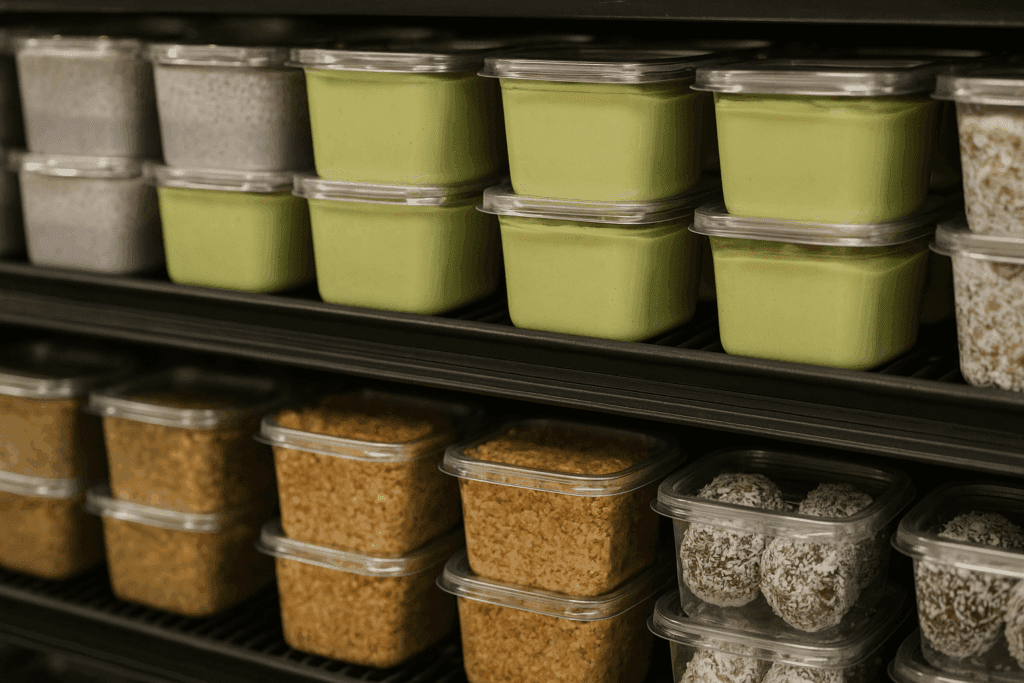
Exploring the Best Vegan Desserts at Whole Foods Market
When stepping into Whole Foods Market, one quickly discovers that the store’s dessert selection goes far beyond traditional offerings. The bakery and refrigerated sections are now well-stocked with vegan treats that prioritize whole food ingredients. From raw cacao truffles rolled in shredded coconut to date-sweetened brownies with almond flour, the variety is both impressive and intentional. Many of these items are clearly labeled as vegan, organic, and free from common allergens, making them accessible to a wide range of dietary needs.
One standout product is the Whole Foods vegan chocolate mousse made from avocado, cacao, and maple syrup. Not only is it creamy and satisfying, but it also offers a dose of heart-healthy fats and antioxidants. Similarly, fruit-based parfaits layered with chia pudding and coconut yogurt are popular for their balance of flavor and nutrition. Seasonal items like pumpkin-spice energy bites or berry crumble bars made with oat crust and flaxseed also grace the shelves. These innovative options highlight how desserts can be both a sensory pleasure and a source of nourishment.
Shoppers can also find premade baking mixes, such as almond flour brownie or vegan banana bread mixes that make plant-based baking at home simple and rewarding. These mixes often include whole ingredients and avoid refined white flour or cane sugar, aligning with the principles of whole foods eating. The convenience of these offerings empowers more people to embrace a healthier lifestyle without sacrificing convenience or taste.
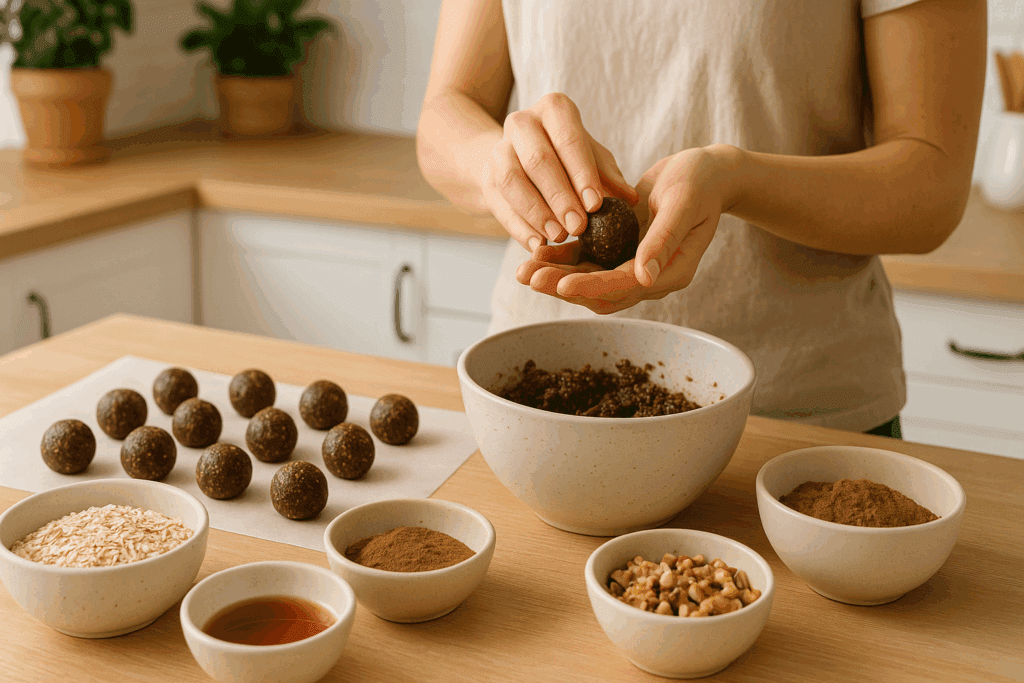
How to Make Whole Foods Vegan Desserts at Home
For those who enjoy creating from scratch, homemade whole foods vegan desserts open up a world of culinary exploration. With just a few staple ingredients—think medjool dates, almond butter, rolled oats, cacao powder, chia seeds, and fresh fruit—it’s easy to whip up a variety of nutritious sweets. One popular favorite is the no-bake date ball, which blends nuts, dates, and a hint of sea salt into a decadent bite-sized snack. Rolled in coconut or dusted with cinnamon, these treats offer both portability and flavor.
Another satisfying option is baked oatmeal bars made with mashed bananas, oats, flaxseeds, and a handful of vegan chocolate chips. They’re perfect for breakfast or dessert and freeze well for meal prep. For a creamy option, blending frozen bananas with a splash of almond milk and vanilla creates a luscious ice cream alternative, often referred to as “nice cream.” Adding berries, cacao nibs, or nut butter creates endless variations.
Homemade puddings using chia seeds and almond milk, sweetened with a touch of maple syrup and layered with fruit puree, offer a visually appealing and fiber-rich option. These recipes not only support digestive regularity but also cater to those avoiding gluten, dairy, and refined sugar. The act of preparing these desserts can be therapeutic, inviting mindfulness into the kitchen and allowing greater control over ingredients and portion sizes.
The Nutritional Benefits of Whole Foods-Based Sweets
Whole foods vegan desserts offer more than just an ethical or environmentally conscious choice—they also provide substantial nutritional benefits. Because they are made with ingredients in their most natural state, these desserts tend to be high in fiber, healthy fats, and phytonutrients. The inclusion of whole grains like oats and quinoa supports heart health and digestion, while nuts and seeds contribute plant-based protein and essential fatty acids.
Fruits such as dates, bananas, berries, and apples supply natural sugars along with antioxidants, vitamins, and trace minerals. Cacao, in its raw form, is particularly noteworthy for its concentration of flavonoids, which have been shown to support cardiovascular health and cognitive function. Coconut products like milk and oil offer a creamy texture while delivering medium-chain triglycerides that may support metabolism.
Unlike traditional desserts that contribute to inflammation and metabolic dysfunction when consumed in excess, whole foods vegan desserts may actually support health when integrated thoughtfully into the diet. Their nutrient density helps maintain energy levels and reduce cravings, making them a smart choice for anyone aiming to stabilize blood sugar or manage weight without feeling deprived.

Vegan Dessert Swaps for a Healthier Lifestyle
One of the easiest ways to transition toward healthier eating is by making simple dessert swaps that reflect whole food values. For instance, instead of ice cream made with dairy and refined sugar, try coconut milk-based frozen treats sweetened with dates or maple syrup. Brownies can be transformed using black beans, almond flour, and cacao powder, offering fiber and protein without sacrificing taste.
Cakes and muffins made from sweet potatoes or zucchini can add moisture and nutrients, while applesauce or mashed banana can replace oil or eggs in many baking recipes. Even traditional cheesecake has a vegan cousin made from soaked cashews blended with lemon juice, coconut cream, and a nutty crust. These alternatives not only satisfy cravings but also introduce health-promoting ingredients in a form that feels indulgent.
Whole Foods Market offers many of these dessert alternatives in-store, helping to inspire home bakers or provide quick solutions for busy lifestyles. By choosing these whole foods vegan desserts over conventional options, individuals can make a meaningful shift toward a diet that supports long-term wellness without giving up enjoyment.
Aligning Dessert Choices with Mindful Eating Principles
Mindful eating emphasizes presence, awareness, and intentionality in food choices. Whole foods vegan desserts naturally align with these principles because they invite engagement with flavor, texture, and satiety. Rather than mindlessly consuming a sugar-laden treat, eating a dessert made from whole, plant-based ingredients encourages individuals to slow down, appreciate the moment, and listen to their body’s hunger and fullness cues.
This shift in awareness can have profound effects on overall health and relationship with food. It allows people to view dessert not as a guilty pleasure but as a component of balanced nourishment. When combined with mindfulness practices like gratitude, chewing slowly, and eliminating distractions during meals, these desserts can become part of a transformative approach to eating.
Whole Foods Market supports this shift by offering transparency in labeling, educational resources, and curated selections that make mindful shopping easier. The availability of clearly marked vegan, organic, and allergy-friendly desserts helps foster an environment where informed choices are not only possible but encouraged. In this way, dessert becomes an extension of a broader lifestyle centered on intention, care, and sustainability.

Whole Foods Vegan Desserts for Special Diets and Allergies
Another important advantage of whole foods vegan desserts is their suitability for individuals with dietary restrictions or sensitivities. Since these desserts avoid common allergens like dairy, eggs, and often gluten, they provide inclusive options for people with conditions like lactose intolerance, celiac disease, or nut allergies. Ingredients can be easily swapped or omitted to tailor recipes to specific needs.
For example, oat- and date-based crusts can serve as a gluten-free base for pies or bars, while sunflower seed butter can replace peanut or almond butter in many recipes. Aquafaba, the liquid from canned chickpeas, can mimic the texture of egg whites and is often used in vegan meringues or mousses. These culinary innovations expand access to delicious desserts without compromising dietary safety.
Whole Foods Market caters to these needs with clearly labeled products and an emphasis on clean, simple ingredients. Whether shopping for a child with food sensitivities or planning a dinner party with guests of varying dietary preferences, the store’s selection of whole foods vegan desserts offers peace of mind alongside exceptional flavor.

The Role of Whole Foods Vegan Desserts in Long-Term Health Goals
Incorporating whole foods vegan desserts into a balanced lifestyle can contribute meaningfully to long-term health outcomes. When individuals choose desserts that support rather than undermine their nutritional goals, they are more likely to maintain consistent, healthy habits over time. The satisfaction derived from these treats can reduce reliance on highly processed junk foods and help create a sustainable relationship with sweets.
Studies have shown that diets rich in fiber, antioxidants, and plant-based fats are associated with reduced risk of chronic diseases such as diabetes, heart disease, and obesity. Whole foods vegan desserts contribute to these protective factors by integrating health-supportive ingredients into enjoyable formats. By choosing desserts that are nutrient-rich and minimally processed, people can enhance their dietary quality without feeling restricted.
In the context of lifestyle medicine and preventive health, dessert no longer needs to be a nutritional compromise. Instead, it becomes an opportunity to reinforce wellness goals, practice self-care, and celebrate food in its most natural, nourishing forms. This paradigm shift is essential for creating a culture where pleasure and health are not mutually exclusive.
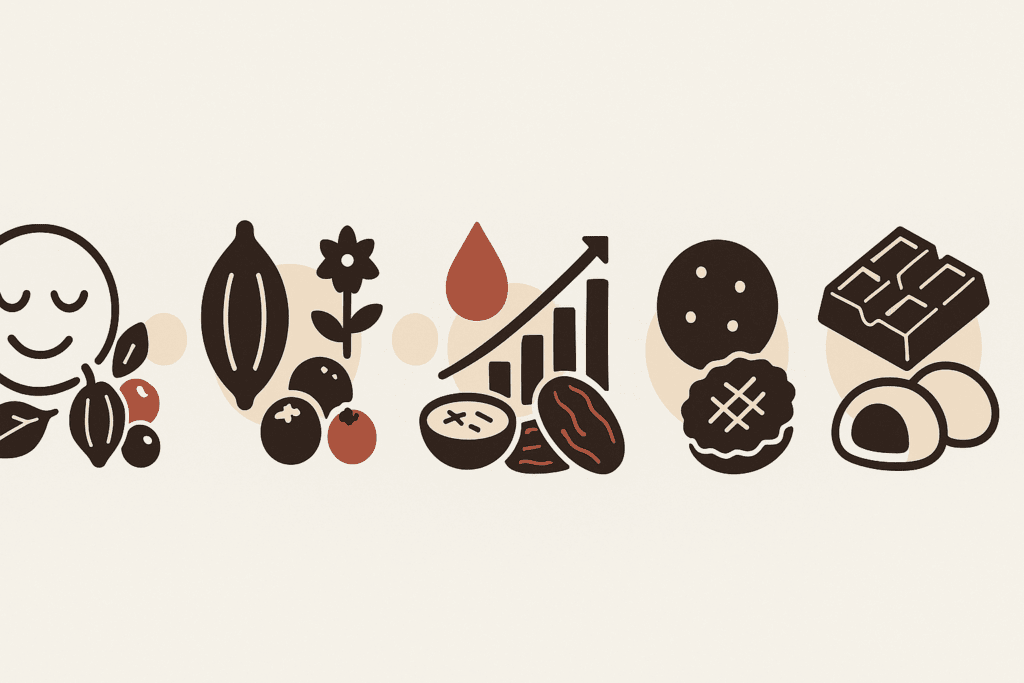
Frequently Asked Questions: Whole Foods Vegan Desserts and Smart Plant-Based Indulgence
1. How can whole foods vegan desserts support mental health and emotional well-being?
Whole foods vegan desserts can offer more than just physical nourishment—they may also play a role in supporting emotional health. Ingredients like dark chocolate (cacao), walnuts, and berries contain compounds such as flavonoids and omega-3 fatty acids that are associated with improved mood and cognitive function. Choosing vegan desserts at Whole Foods Market that incorporate these whole food elements allows for enjoyment without the guilt or physiological consequences often tied to refined sugar consumption. Mindfully enjoying nutrient-dense sweets may even reduce emotional eating by promoting satisfaction and stabilizing blood sugar. By creating a balanced relationship with dessert, individuals can feel emotionally fulfilled while still respecting their health goals.
2. What are some emerging trends in whole foods vegan desserts to watch for?
One exciting trend in whole foods vegan desserts is the incorporation of functional ingredients, such as adaptogens and probiotics. Brands are beginning to formulate vegan desserts at Whole Foods Market that go beyond taste to offer benefits like stress reduction and gut health support. For example, desserts infused with ashwagandha or reishi mushrooms are becoming more common in raw vegan truffles or plant-based ice creams. There is also increasing demand for lower-glycemic sweeteners like monk fruit and yacon syrup, which allow for indulgence without spiking blood sugar. These innovations reflect a broader movement toward desserts that do more than delight—they support holistic health.
3. Can whole foods vegan desserts help manage blood sugar levels more effectively than traditional sweets?
Yes, many whole foods vegan desserts are naturally lower on the glycemic index due to their reliance on fiber-rich, minimally processed ingredients. When you choose vegan desserts at Whole Foods Market that use dates, oats, and nut butters instead of refined flours and sugars, you’re less likely to experience sharp blood sugar spikes. These desserts often contain healthy fats and plant-based proteins that slow digestion and enhance insulin sensitivity. This makes them suitable options for individuals managing diabetes or insulin resistance. Consuming desserts made from whole ingredients also encourages portion mindfulness, further supporting metabolic health.
4. Are there cultural or regional influences in the development of vegan desserts at Whole Foods Market?
Absolutely. Whole Foods Market has embraced global culinary influences in its plant-based offerings, including desserts inspired by Middle Eastern, Asian, and Latin American traditions. You can find whole foods vegan desserts inspired by Turkish date and nut confections, Japanese mochi made with plant-based ingredients, or coconut-rich Thai rice puddings. These cross-cultural offerings not only expand flavor profiles but also make vegan desserts more inclusive and accessible to diverse communities. This approach celebrates food heritage while aligning with modern plant-based values, allowing customers to explore global tastes in a health-conscious way.
5. How can athletes or active individuals benefit from whole foods vegan desserts?
For those with high physical activity levels, whole foods vegan desserts can serve as an ideal post-workout treat. Vegan desserts at Whole Foods Market often include ingredients like almond butter, oats, and cacao, which deliver carbohydrates for glycogen replenishment, along with protein and healthy fats to support muscle recovery. For instance, an energy bite made with dates, chia seeds, and sunflower seed butter can provide a balanced macronutrient profile for post-exercise fuel. Many athletes turn to plant-based desserts as clean energy sources that don’t contain additives or artificial sweeteners. Incorporating these desserts mindfully can aid performance and long-term recovery without compromising on taste.
6. What should consumers look for on labels when buying vegan desserts at Whole Foods Market?
When choosing among the wide variety of vegan desserts at Whole Foods Market, it’s essential to read ingredient labels with attention to sourcing and processing levels. Look for desserts made with whole ingredients like fruit, legumes, nuts, and seeds, rather than those with refined starches or added sugars. Certifications such as USDA Organic, Non-GMO, or Fair Trade can also signal better quality and ethical sourcing. If you’re managing allergies, opt for items labeled as gluten-free, soy-free, or nut-free depending on your sensitivities. Finally, seek out desserts with short, simple ingredient lists—this is a hallmark of whole foods vegan desserts made with integrity.
7. Can children safely enjoy whole foods vegan desserts, and how can parents introduce them?
Whole foods vegan desserts can be an excellent option for children, especially when they are free from common allergens and refined sugars. Many kid-friendly vegan desserts at Whole Foods Market come in appealing forms like fruit bars, mini cookies, or snack bites that are naturally sweetened and easy to digest. Parents can introduce these by involving children in the dessert-making process—blending bananas for nice cream or rolling date energy balls, for instance. This hands-on experience fosters a positive connection with healthy eating and builds foundational cooking skills. Over time, kids develop a preference for the subtle sweetness of whole foods over hyper-sweetened snacks.
8. How do whole foods vegan desserts contribute to environmental sustainability?
The production of whole foods vegan desserts typically results in a lower carbon footprint than conventional dairy-based sweets, making them a smart choice for eco-conscious consumers. Ingredients like legumes, nuts, and seeds used in vegan desserts at Whole Foods Market require significantly less water and land than animal-based alternatives. Moreover, Whole Foods often prioritizes locally sourced and organic products, which further reduce the environmental impact. Many brands also use compostable or recyclable packaging, enhancing the sustainability of their offerings. By choosing desserts aligned with a whole foods vegan ethos, consumers actively support a more resilient and responsible food system.
9. Are there ways to elevate homemade whole foods vegan desserts for special occasions?
Homemade whole foods vegan desserts can absolutely be elevated for celebratory meals or elegant presentations. Incorporating unique garnishes such as edible flowers, citrus zest, or spiced nuts adds visual appeal and depth of flavor. For layered treats, using clear glassware can enhance aesthetics—think parfaits with coconut whipped cream, fruit puree, and chia pudding. Vegan desserts at Whole Foods Market can also serve as inspiration for refined homemade versions by experimenting with premium ingredients like raw cacao nibs, Medjool dates, or artisan plant-based cheeses. With some creativity, these desserts become stunning centerpieces that impress without compromising on health or ethics.
10. What does the future hold for whole foods vegan desserts in mainstream markets?
The future of whole foods vegan desserts is promising as consumer demand continues to shift toward clean, plant-based options with functional benefits. Innovation is rapidly expanding, with food scientists and chefs developing next-generation sweeteners, prebiotic blends, and fermented elements to enhance flavor and nutrition. We’re also seeing a rise in personalized nutrition, where vegan desserts at Whole Foods Market may eventually cater to specific wellness goals such as hormonal balance, brain health, or immunity. As supply chains improve, expect more local and regenerative farming to support ingredient sourcing. In essence, whole foods vegan desserts are not just a trend—they’re becoming a cornerstone of the sustainable, health-forward future of food.
A Sweet Conclusion: Embracing Whole Foods Vegan Desserts for Wellness and Joy
As the movement toward plant-based, health-conscious living continues to grow, whole foods vegan desserts offer a delicious intersection of nourishment, ethics, and indulgence. These treats reflect a deeper understanding of food’s role in wellness, empowering individuals to make choices that align with both their health goals and their values. Whether discovered in the curated aisles of Whole Foods Market or crafted in a home kitchen, these desserts exemplify how sweetness and substance can coexist beautifully.
The availability of diverse vegan desserts at Whole Foods Market makes it easier than ever to explore this enriching culinary path. With each mindful bite, we can move closer to a lifestyle that celebrates flavor, fosters sustainability, and prioritizes well-being. Embracing whole foods vegan desserts isn’t just a dietary choice—it’s a statement of care for ourselves, our communities, and the planet we share. By indulging smartly and sweetly, we open the door to a future where health and happiness are served on the same plate.
Was this article helpful? Don’t let it stop with you. Share it right now with someone who needs to see it—whether it’s a friend, a colleague, or your whole network. And if staying ahead on this topic matters to you, subscribe to this publication for the most up-to-date information. You’ll get the latest insights delivered straight to you—no searching, no missing out.
Further Reading:
67 Healthy Vegan Recipes That Are Totally Crave-Worthy
Disclaimer
The information contained in this article is provided for general informational purposes only and is not intended to serve as medical, legal, or professional advice. While NewsHealthWatch strives to present accurate, up-to-date, and reliable content, no warranty or guarantee, expressed or implied, is made regarding the completeness, accuracy, or adequacy of the information provided. Readers are strongly advised to seek the guidance of a qualified healthcare provider or other relevant professionals before acting on any information contained in this article. NewsHealthWatch, its authors, editors, and contributors expressly disclaim any liability for any damages, losses, or consequences arising directly or indirectly from the use, interpretation, or reliance on any information presented herein. The views and opinions expressed in this article are those of the author(s) and do not necessarily reflect the official policies or positions of NewsHealthWatch.

